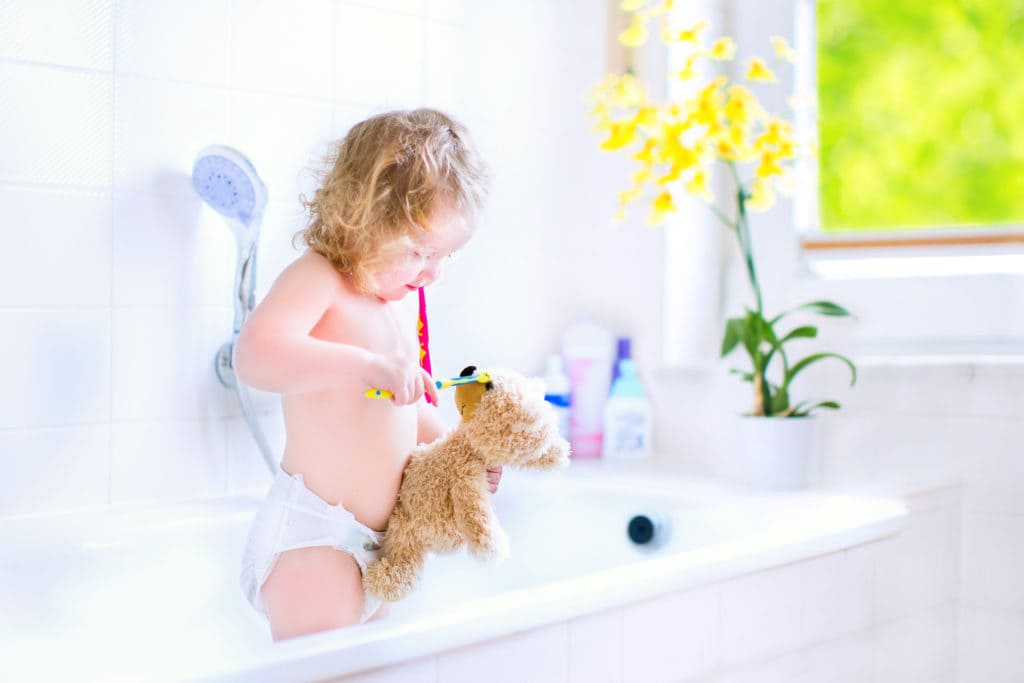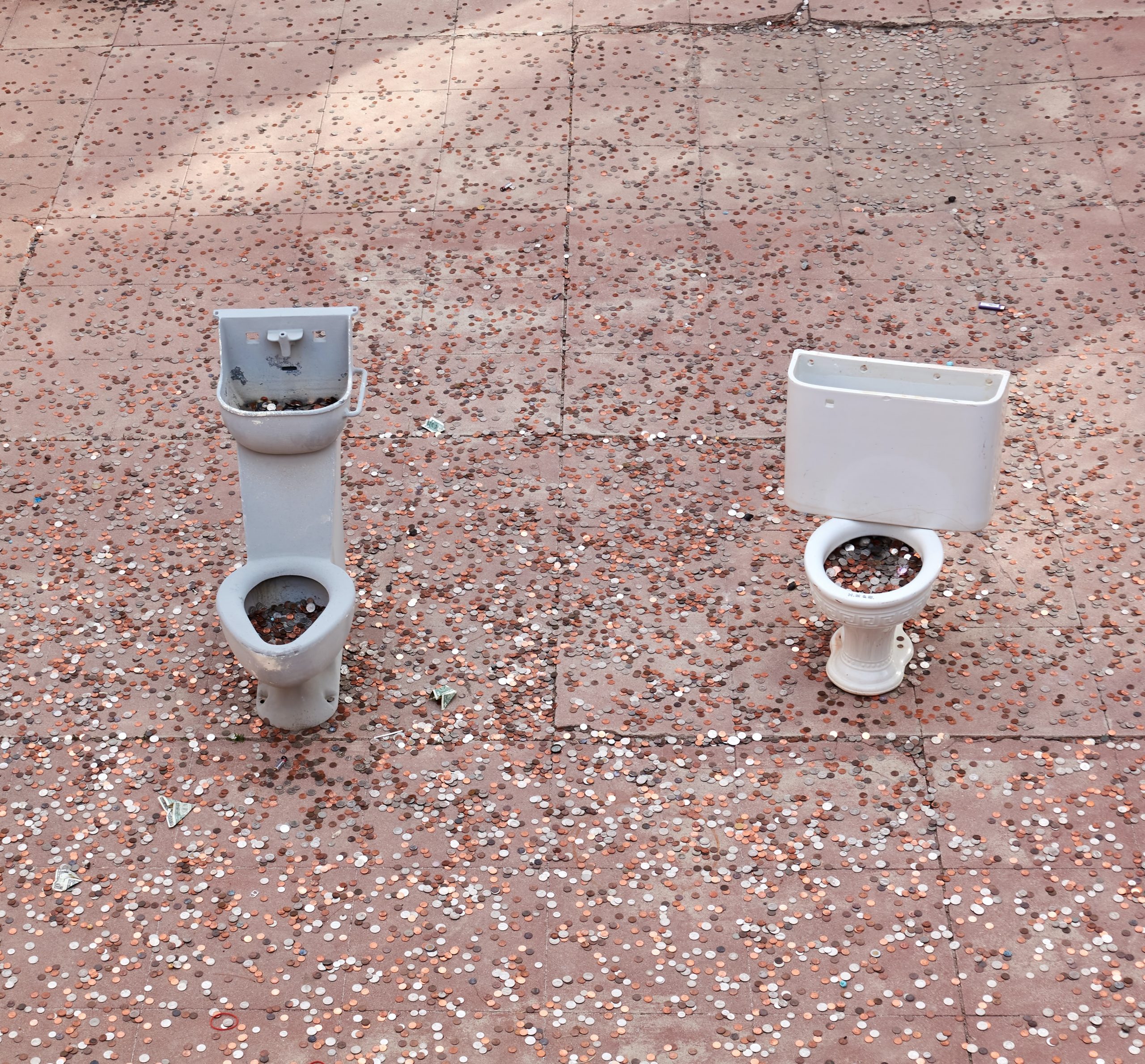As a parent, it is such a proud moment when your toddler starts potty training and has success.…
As a parent, it is such a proud moment when your toddler starts potty training and has success. With many children, it starts off well, but there is a potty training regression. Whether your child is a toddler, a three-year-old or four-year-old, there are practical strategies here to help through the most frustrating potty training issues.
Even though it would appear that my little girl is very much potty trained, I’m reluctant to shout it from a mountaintop.
Potty training our firstborn started off without a hitch.
We bought a potty. And, in about a month’s time, she started hiding when she used her diaper, would tell me she went pee or poo and was waking from her nap dry.
So we gave it a go.
I brushed up on the three-day potty training method and told myself, “If the internet says it’ll work – it will work.”
She would sit on the potty at preset intervals and sit and sit and sit and sit.
Nothing happened until she got off the pot. After a few days without getting her to successfully go, I decided to try again when she was a bit older.
No big deal.
‘Take Two’ started off impeccably. More than once, I boasted to my husband, “This just shows, when they’re ready, they’re ready!” The first day she had one accident. Day two none. Day three one.
It was going really well. The next few weeks of potty training went off without a hitch. We stayed close to home so that when she needed to go potty, we could. She had the occasional accident, but overall she went in the potty regularly.
I was confident toilet training was done!
Related reading: The Best Books for Potty Training Toddlers
About a month and a half after potty training began, I started back at work part-time.
My daughter is a sensitive soul and the change in her routine created stress. Then, my husband decided to take a job offer across the country. Soon my daughter’s life was turned upside down. Her toys were in boxes as our apartment emptied…
Related reading: 10+ Effective Strategies to Mitigate Difficult Toddler Behaviour
Potty training regression can leave many parents scratching their heads. But what is it, really? Well, in simple terms, potty training regression is when your child, who was doing great with using the potty, suddenly starts having accidents or showing resistance to it. It’s like taking one step forward and two steps back.
This regression is quite common and is a natural part of the potty training process. It can happen for various reasons, from a change in routine or environment to emotional stress or even a desire for more attention. The critical thing to remember is that it’s usually temporary and part of the learning curve.
According to developmental experts, most children will experience some form of regression in their lives. When children experience stress and have to adapt is the time regressions are most likely to happen.
Examples include:

For instance, when my daughter had a UTI after she had been fully potty trained for quite some time, she started having accidents again. Toilet training issues can also be the result of a developmental delay or issue. Be sure to ask your paediatrician first before attempting to resolve an issue that may need medical attention.
Make the accident into a non-event in order to maintain motivation in going potty. In terms of the bigger picture, accidents will happen whenever a child is learning a new skill. Dr. Peter Stavinoha, author of Stress-Free Potty Training, warns against any form of chastisement. “
TV shows and books that cover the subject are fascinating for little ones & help them conceptualize what they need to do. iTunes and Amazon are chalked full with such resources. When I was growing up and when my daughter was potty training we used, Once Upon A Potty.
Social stories are an invaluable tool for scaffolding a child’s learning. My rendition was “When Mama was your age, she was learning to use the potty too. Sometimes I had accidents. Nana and Grandpa would say, ‘That’s okay Mama. Everyone has accidents. It means you’re learning.’ And then Mama kept trying. Sometimes she still had accidents, other times she didn’t. Until one day, Mama didn’t have accidents anymore! Yay!”

When my daughter no longer wanted to go potty, we would try putting the seat on the toilet, moving the potty out of the bathroom and closer to where she was playing.
While officially many resources say it’s best not to use a little treat – just praise – unofficially, we had success using M&M’s as a reward for trying or going potty. Then we slowly weaned away from using them at all.
As far as bedtime went, we waited until our daughter asked to go without a diaper. It hasn’t gone off seamlessly, by any means, but she now is dry at night.
And know unequivocally, children without health issues will be potty trained. You won’t be potty training your child at his high school grad. You just won’t. And believe it or not, there isn’t an award for the fastest potty trained kid.
For more insights for toilet training, check out my Pinterest board.
Recognizing when your child isn’t quite ready for potty training is crucial in avoiding potential setbacks. Some clear signs can help you gauge their readiness.
Age: if your child is under 18 months old, they might not be physically or emotionally prepared for potty training.
Communication skills: it may be too early to start if your child can’t express their needs or understand basic instructions.
Resistance and refusal: if your child vehemently refuses to sit on the potty or shows fear or anxiety about the process, it’s a sign that they might not be ready.
Inconsistency in their daily routine: if your little one’s habits are all over the place, it’s better to wait.
Discomfort: if they show distress during bowel movements, they might not be ready for the transition.
It’s crucial to remember that setbacks can happen, and most of them are perfectly normal. Enrolling your little one in a potty training school can give them the structured support they need to master this important milestone, making the process smoother for both of you.
However, there are certain situations where seeking advice from a medical professional, such as your child’s pediatrician, becomes necessary.
Is your child beginning to experience painful bowel movements during potty training regression? If yes, there might be a medical issue that requires attention.
While occasional discomfort can be a part of the potty training process, persistent pain can be a red flag. Furthermore, check if your child’s bowel movements become irregular, excessively loose, or infrequent. These can be a sign of a medical condition that needs evaluation.
Yes, it’s common for children to regress during potty training. Bedwetting or accidents may happen once in a while. However, when there’s blood in the stool, severe constipation, or significant changes in their bowel habits, it’s time to consult a medical professional.
Your child’s pediatrician can help determine if there’s an underlying medical issue and suggest common cures or treatments to address the problem. Remember, it’s always better to be cautious about your child’s health; your pediatrician is there to guide and support you during this developmental stage.
1. How long does it take for a child to be fully potty trained?
According to Romper.com, children, who are ready to be potty trained, take between three to six months to be fully potty trained.
2. When are children ready to potty train?
Children tend to be ready to use the potty between the ages of 18 and three-years-old. Signs include interest in using the potty and/or wearing underwear, dry diapers after naps, looking for privacy when he urinates or defecates, and/ or she informs you she has used her diaper.
3. What causes a potty training regression?
Regressions tend to happen when there are changes in the child’s environment such as moving, starting or changing daycares, the arrival of a new sibling or the separation of parents.
Find more of our favorite resources Here
Ask any parent who has watched a two‑year‑old “fail” to hear the call to put on shoes—only to…
Toddlers can be confusing, to say the least. One moment they’re clinging to your leg like a baby…
Affection wasn’t really a thing in my childhood home. My parents were good providers, but hugs, “I love…